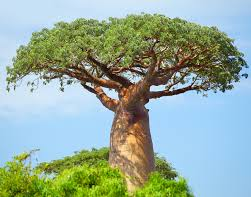Securing the History of Self: What of Historical Organisation?
- By kwende ukaidi
- •
- 02 Oct, 2024
- •
Celebrating the Great Afrikan History Continuum

Throughout the ages of the Afrikan self-determined norm of
self-governance, this primary people of creation were able to construct the necessary
establishments of learning, development and archive to service their historical
needs. Of course, Afrikan constructs in this regard may not have looked like
the attempted imitations that outside onlookers made for themselves. For, this soul
people built as an outward expression of their deeply rooted spiritual-cultural
norm at the core of their lives. In this, servicing themselves with resources
of their history may have been effected via designated communal space, just as
it may also have been effected via the cultural repositories and engagements of
living intimately connected with the person self.
In the contemporary era fraught with interruption and disruption to Afrikan life, historical institutions governed by and servicing the best interests of others are commonplace. A mainstream source offers the following detail of the historical organisation in this context:
“Historical organisation means an eligible organisation with history as its primary mission and purpose. The organisation must operate as an historical organisation, including but not limited to an historical museum, interpretive centre, historical society, historical library or archival repository”.
Such detail may be adapted to bring specific focus to the Afrikan experience. Alteration may yield the following:
“Afrikan historical organisation means a self-determined Afrikan organisation (or a part of a self-determined Afrikan organisational thrust) that holds Afrikan history as its mission and purpose in service of Afrikan ascension and security. Such an organisational facility must be determined by Afrikan souls themselves that may include but is not limited to an archive facility, historical learning and development programmes and any other structured operations deemed necessary by this soul people – brought to be and functional in ways that they deem best to service themselves”.
Of course, such detail lends itself to the important arena of communal organisational engagements. Yet, at the same time, it is crucial that Afrikan souls do not lose sight of the more intimate means of history organisation at (say) the person level or family level. It would be restrictive – at best – if Afrikan souls were to adopt the posture of being imitators of those that attempted to imitate them in the first place.
The requirement for Afrikan souls to have their self-determined facilities that can service their historical needs has been fulfilled by this soul people themselves as a natural norm from the earliest of times. As such, it is natural for Afrikan souls to continue to do the same, whether they are subject to disruption or not in the best ways possible – despite the challenges. Just as others that mean the Afrikan ill may work to thwart Afrikan people’s access to Afrikan history and make prevalent disarray and disorganisation of Afrikan history in relation to Afrikan people – Afrikan souls surely must organise themselves and their historical facilities. After all, the organised collective memory of civilisation can empower the establishment of civilised oneness and its civilisation.
Afrikan Historia Msimu is an observance period for the duration of the tenth month of the year (so-called October). This is a special time for learning, growth and development of the Afrikan experience in the world. It is a time of spiritual and cultural elevation as Afrikan history is restored to fabric of life in the living knowingness of the then, the now and tomorrow. Great ones of the Afrikan journey are highlighted and the symbols relevant to the time invigorate life in the imperative onward flow of global Afrikan ascendancy. This wonderful observance is a part of the cultural calendar of the Universal Royal Afrikan Nation (URAN).
The Universal Royal Afrikan Nation (URAN) is an Afrikan-centred spiritual and cultural mission for ascendancy that embodies living spiritually and culturally rooted life. To find out more about URAN and its spiritual-cultural mission for liberty and nationhood click here. The exquisite URAN pendant can be obtained online by clicking here.
In his capacity as an Afrikan-centred spiritual cultural practitioner this author is available for further learning in this regard and also for the carrying out of ceremonies such as naming and name reclamation. For details please click here.
Afrikan World Studies programmes are important forms of study in understanding the Afrikan experience. There are a range of subjects covered on these programmes including History, Creative Production, Psychology and Religion. To find out more about these learning programmes please click here. For the video promo for these learning programmes click here.
At nominal cost, also consider acquisition of an a4 laminate poster of articulations by this author when visiting the Yemanja-O establishment to enrol, consult, learn, gather or otherwise.
Also, visit www.u-ran.org for links to Afrikan liberation Love radio programme on Universal Royal Afrikan Radio online.
